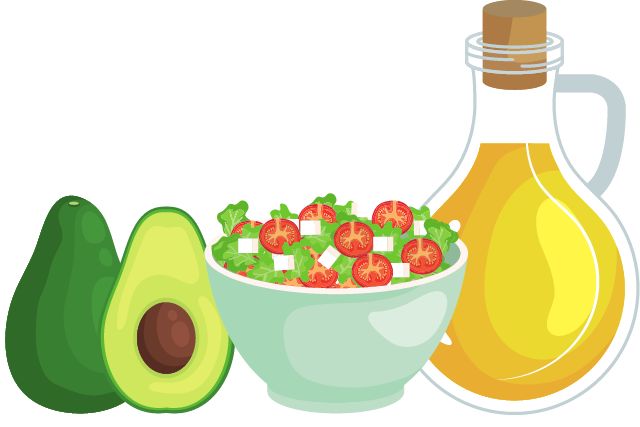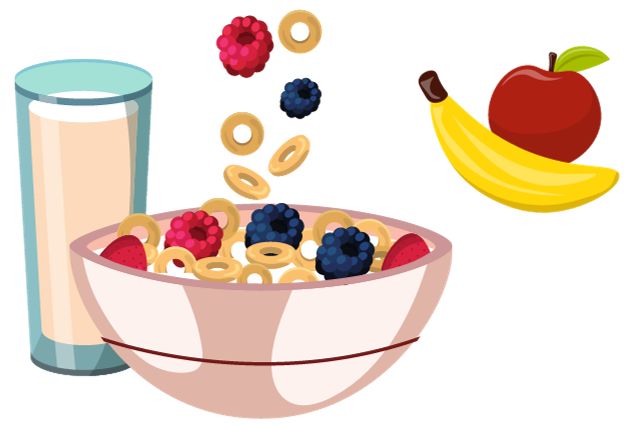Thinking of healthy lifestyle? Discover 14 ancient secrets to healthy and sustainable lifestyle. Learn how to start a healthy lifestyle without breaking a sweat! Get started today and start living healthy.
They say,
The secret to having a healthy lifestyle is in diet, mind, and exercise.
Well, I can’t agree more.
Diet affects the quality of your life. It also affects your disease risk, longevity, and mental health.
Also, a healthy lifestyle is a door to productivity and prosperity.
But how many of us consciously try to stay in the good books of a healthy lifestyle?
Often, we struggle to put our life in order because of simple decisions that never work for our well-being. We are always taking shortcuts without minding the possible repercussion.
But in the end, we spend so much money and time trying to reverse or manage what we have built.
You don’t have to live in that rut race anymore.
2023 should be different.
This post reveals the secrets to maintaining a healthy lifestyle that will not cost you all your fortunes, including your life.
Keep reading.
Affiliate Disclosure: As an Amazon Associate, I get a small commission for purchases made from Amazon.com through links in this post. Learn more about our affiliate disclaimer here.
14 Surprisingly Simple Ways To Start a Healthy Lifestyle Without Toiling
1. Identify and Replace Your Unhealthy Eating Behaviors
Healthy eating involves several factors. Not only are you supposed to concentrate on diet alone, but how you consume your food also matters.
I mean,
How you eat your foods can also impact your health and weight management.
If your healthy eating efforts have not been bringing in the desired outcome, you may be committing one of the following unhealthy eating behavior or mistakes.
-
Always eating while standing or on- the go.
Studies suggest that the posture you adopt while eating may significantly influence your digestion process.
Dietitians normally caution their client’s against eating while standing if they want to lose weight.
This is because eating while standing or on the go increases your eating speed which may result in overeating and consuming more calories.
Also, getting on the go immediately after meals may cause your stomach to empty quickly.
In fact, a study shows that your gut can digest foods up to 30% faster than a person sitting down. This can leave you feeling hungrier and craving more calories after a meal.
Additionally, eating while standing can affect the rate of nutrient absorption, leading to bloating.
To be safe,
Sit down while eating. This will not only encourage you to practice mindfulness during meals but can help you experience more pleasure and reduce the likelihood of overeating.
-
You eat too quickly most of the time.
This is me, but I don’t want to say it. Anyway, a study by NIH seems to vote for slower eaters.
According to this study, slow eaters take in 66 fewer calories compared to fast eaters at any given meal.
To support slow eating, research bases their argument on the fact that hormones control your appetite. And it takes about 20 minutes for your tummy to alert your brain that it’s had enough.
If you eat too quickly, you may “clean your plate” instead of paying attention to whether your hunger is satisfied.
Also, another study associates fast eating with increased BMI (body mass index), especially in adolescents.
To be safe with weight management, try to eat slowly.
Eating slowly tends to reduce appetite and increase feelings of fullness. This can help you eat fewer calories at any given meal for effective weight management.
-
You restrict yourself too much.
Restricting yourself so much often results in hard-to-ignore cravings. It’s a recipe for bingeing in the future.
Dieting and food restriction have been shown to increase the risk of binge eating.
When you restrict yourself too much, you’ll end up feeling deprived.
As such, you’re more likely to overeat once you stop restricting.
This restrict-binge cycle is the opposite of a moderate, balanced, peaceful approach to diet and eating. Choose your battles wisely; you will never win a race against cravings!
-
You eat most of your meals out.
Do you want to save money and calorie consumption this new year?
Eat less of your meals out.
We understand the restaurant fee can be high compared to cooking at home. Also, you’re never sure about the ingredients used.
As such, you may consume more calories, bad fats, and other unhealthy ingredients that can cause belly bloat.
Cooking your meals gives you the power to choose what to consume, from the ingredients to the final portion.
According to Johns Hopkins research, home cooks may consume about 200 fewer calories than people who eat out more often. So try and eat at your home.
-
You are always eating at your desk.
Are you an ‘al-desko.’?
I mean, you’re always eating at your working table to save time?
Well,
This is an unhealthy eating behavior that can cost you up to 50% more calories per meal.
A study by the NPD group suggests that about 62% of professional Americans eat at their working desk.
Not a bad thing, but…
The issue is that you’re eating distractedly. Being distracted can overshadow your mindfulness, thus end up consuming up to 50% more calories than you intended.
Instead, take a minute off the workspace and dine in the breakroom or office kitchen.
If you’re at home, eat at your dining table with minimal distractions, like watching a movie. Such distractions keep you from paying attention to how quickly and how much you eat.
Generally, pay attention to;
- Eating slowly.
- Eat only when you’re truly hungry instead of when you are tired, anxious, or feeling an emotion besides hunger.
2. Invest in a Mediterranean Diet for a Healthy Lifestyle
If there is any unstructured eating pattern that drew the attention of medical professionals in this world is the Mediterranean diet.
Simple as it may sound, this eating pattern proved to have numerous health benefits to ancient civilians living along the Mediterranean Sea like France, Greece, and Italy.
According to research, the diet which emphasizes eating traditional plant-based foods made the people along the sea exceptionally healthy.
They had few cases of chronic conditions like cardiovascular diseases, metabolic syndrome, obesity, diabetes, cancer, and neurodegenerative diseases.
Their primary diet included fresh fruits, legumes, nuts, vegetables, seeds, and whole grains. They used olive oil as the main source of added fats with moderate fish, dairy products, and seafood consumption.
Interestingly, these communities also took red wine for their alcoholic needs.
so,
What does a Mediterranean Diet entail?
In approximation, one study shows that the MedDiet consisted of about 3 -9 serves of vegetables, ½ to 2 serves of fruit, 1-13 cereal servings, and about 8 serves of olive oil daily.
This is not to say we must follow the Mediterranean diet to the letter.
The most important factor is to adopt a lifestyle diet that resembles the Mediterranean -eating pattern.
Your diet should be more plant-based like whole grains, Vegetables, and fruits, cooked with hearty-friendly oil, and moderate consumption of meat.
Living on a Mediterranean-like diet may promote weight loss and help prevent lifestyle diseases like heart attacks, and stroke.
Want to know how to begin?
Grab this Complete Mediterranean Cookbook with Kitchen Tested Receipts for healthy living.
Related: 7 Simple Diet Tips To Fight Recurring Candida Yeast Infection
3. Habitually Eat Breakfast to Boost your Productivity
Do you want steady glucose levels, consistent energy, a better mood, and fewer cravings all day?
Eat breakfast.
For years breakfast has been considered the most important meal of the day.
Although some research suggests otherwise, practically, it is still important. A healthy breakfast is an essential body fuel and a key nutrient body provider all day.
Break…fast breaks the overnight fasting period. It replenishes your supply of glucose and boosts your energy levels and alertness.
Many systematic reviews linked a healthy breakfast to improved short-term memory and attention.
According to these studies, those who habitually skip breakfast run a higher risk of cardiovascular and metabolic diseases like;
- heart disease and cardiovascular-related risks
- diabetes
- obesity
- high blood pressure
- stroke
- abdominal obesity
Additionally, another study associates breakfast eating habits with healthy living.
According to this study, people who frequently eat breakfast are more likely to pay attention to their nutrient intake and participate in physical activity than those who frequently skip breakfast.
But you may be wondering
What should you eat for breakfast?
Well, there is no one-size-fits-all approach to this question.
What matters most is achieving optimal health. If you enjoy breakfast, begin your day with nutritious foods.
Some healthy breakfast foods include:
- oatmeal
- Greek yogurt
- berries
- whole-grain toast
- chia seeds and nuts
- eggs
- avocado
You have no reason to skip breakfast unless you’re practicing intermittent fasting.
Here are excellent cookbooks for a healthy breakfast.
4. Taking Your Dinner Earlier for Healthy Lifestyle
Many dietitians advocate for early and light dinners.
Eating your dinner early, around 6 p.m. instead of 10p.m is associated with improved sleep and digestion and can boost metabolism.
According to a JCEM study, late dinner can contribute to weight gain and high blood sugar levels.
The study found that eating late raised blood sugar levels by almost 20 percent. Also, fat burning was 10 percent lower than those who ate dinner earlier.
Eating dinner affects your blood glucose and the ability to burn fat.
This study reminds us that cultivating eating habits addressing not only traditional factors such as meal content and size but also meal timing may influence the risk of chronic diseases such as diabetes and heart disease down the road.
If you know that you may have a late dinner, eating a small, high-protein snack like yogurt and nuts in the late afternoon may help reduce your hunger so that you will later only eat a snack-size meal.
You better eat your largest meal at breakfast or lunch and only small to moderate meals at night.
Related:
How To Stop Your Sugar Cravings For Good
10 Warning Signs That You’re Too Much Sugar
5. Do the Japanese Water Therapy for Healthy Lifestyle
Water is essential in the human body. Besides regulating your body temperature, water is also necessary for moistening tissues, protecting body organs, and transporting nutrients and oxygen to cells.
Research has shown that drinking water can aid in weight management by slightly increasing the number of calories you burn daily.
Similarly, drinking water before meals can fill your tummy and curb your appetite, leading to low food consumption.
Japanese water therapy is a practice that animates from Japanese medicine.
It involves drinking several glasses of room-temperature water every morning on an empty stomach or when you first wake up.
It’s alleged that this therapy could help cleanse your digestive system and regulate gut health.
Many medics claim you can treat many problems with a functional digestion system. You’re likely to lower the risk of constipation, high blood pressure, type 2 diabetes, and cancer.
What does Japanese water therapy entail?
The therapy entails the following steps that should be repeated daily:
- Drink about four (3/4-cup (160-ml)) glasses of room-temperature water on an empty stomach upon waking up. Wait another 45 minutes before eating breakfast.
- At each meal, eat only for 15 minutes, and wait at least 2 hours before eating or drinking anything else.
But does it work?
Apart from gaining the benefits of getting adequate water in your system, there is no scientific evidence proving claims that Japanese water therapy will heal all these diseases.
However, drinking a lot of water is the key to living a healthy lifestyle.
So,
what is the deal for the none Japanese who want to stay healthy?
- Drink at least 1-2 glasses of room-temperature water on an empty stomach when you wake up and wait at least 30-45 minutes before eating your breakfast.
- Drink water before meals: drinking at least (500 ml) of water 30 minutes before breakfast reduced the number of calories consumed by 13%.
- Drink water before and after exercise
- Sip water throughout the day.
Is it better to sip water or drink it fast?
Sipping water is preferred over drinking a lot over a short period.
Why?
Because it allows the body to process the water effectively.
Drinking too much water -very fast may cause over-hydrating or water intoxication.
Research suggests that over-hydration occurs when people drink more water than their kidneys can get rid of through the urine.
The amount of water is not the only factor — time also plays a role.
The kidneys can remove 20–28 liters of water per day, but they cannot excrete more than 0.8 to 1.0 liters per hour. Drinking more than this can be harmful.
It can result in an imbalance in sodium and electrolytes as water moves from your blood to inside your cells, making them swell.
What are the warning signs that your body needs more water?
- Feeling of thirst
- Concentrated, orange urine
- Persistent headaches.
- Bad breath
- Muscle Cramps and Joint Pain
- Constipation
- Low Energy and fatigue
- Feeling disoriented and confused.
- Having dry eyes, mouth, and skin.
- Fast heartbeat
How do you ensure that you drink enough water per day?
Have a water bottle around you for sips. Here are the best and most stylish water bottles to carry around in 2023.
6. Do a Colon Cleansing Once in a While
The colon is part of the larger digestive tract. Its main function is stool formation and the dispensation of food wastes.
It does this with the help of bacteria in your colon that feed on the waste and break them down further, completing the chemical part of the digestive process.
A colon cleanse is a practice that has been around since ancient times.
Its widely known in the alternative medicine field offering colon cleansing for other purposes of detoxification.
Colon cleansing involves flushing out your colon and intestine track to remove unspecified toxins that could be accumulated during digestion.
One pilot study suggests colon cleansing can benefit people with irritable bowel syndrome.
It can help remove toxins from your digestive system and better your digestion. These may result in weight loss, increased energy, and clearer thinking.
Disclaimer!
Most of these claims are unproven and lack scientific support. As such, colon cleansing should be approached with caution.
If you choose to colon cleanse, be sure to use certified products.
You can also do a procedure considered safe after seeking advice from your professional healthcare provider.
Otherwise, this practice can leave you with potential risks of dehydration, electrolyte imbalance, bowel perforation, and bacterial imbalance.
To be safe, but with a healthy colon
- Eat a high-fiber diet with lots of raw vegetables.
- Drink plenty of water to stay hydrated.
- Avoid eating too much red meat and processed meats, as these are linked to colon cancer.
- Consider taking daily probiotics to create a more diverse bacterial environment in your colon.
- Include plenty of variety in your diet. Eating a variety of foods makes a difference in colon health.
Here are natural ways for colon cleansing at home
- Set aside some days to fast. This may be 1–3 days.
- During fasting, drink only specific liquids, such as plain water, salted water, or lemon juice.
- You may also take apple juice and raw vegetable smoothies
- You may incorporate supplements, medical-certified colon cleansers, or herbs for more effectiveness.
- After detoxing and cleansing, ensure you take probiotics and electrolytes
Related:
- How To Do a Natural Colon Cleanse at Home
- 11 Reasons Why Every Woman Needs a Probiotic Once In a While
7. Intermittent Fasting is the way to go for a Healthy Lifestyle
Intermittent fasting (IF) is by far the trendy health practice among people who want to shed some weight and stay healthy.
Although fasting has existed since time memorial, many studies link IF to a healthy lifespan, weight loss, and improved brain function.
But what is intermittent fasting?
IF is not a diet per se, but entails an eating pattern that cycles between periods of fasting and eating.
It mainly focuses on when rather than what to eat.
There are several different ways of doing intermittent fasting — all of which involve splitting the day or week into eating and fasting periods.
These are the most popular methods:
- Time-restricted eating which Involves fasting every day for 12 hours or longer and eating in the remaining hours.
- The 5:2 diet which involves eating as you normally do 5 days of the week and restricting your calorie intake to 500–600 on the remaining 2 days.
- Eat Stop Eat. Involves a 24-hour fast once or twice per week.
Is intermittent fasting worth a try?
Definitely yes.
Fasting affects your cellular and molecular activities.
For instance, your body may start repair processes or adjusts hormone levels to make stored body fat more accessible. This can lead to weight loss and less belly fat without consciously restricting calories.
Intermittent fasting can also help insulin sensitivity, heart health, and curbing inflammation in your body.
Additionally, studies suggest that it can delay aging and aid in brain health by promoting the growth of new nerve cells.
Warning!
Despite the fact that Intermittent fasting is generally considered safe. You must take caution when beginning or following the eating routine.
The following group of people should not take part in IF unless medically advised.
- children and adolescents
- people who are pregnant or breastfeeding
- people who have diabetes
- people taking certain medications
- people with a history of eating disorders
8. Consciously Care for your skin
The skin is the largest body organ. It serves the purpose of a watchman, protecting your internal systems from mechanical, thermal, and physical injury.
Besides, it acts as a body temperature regulator, prevents moisture loss, and acts as a sensory organ to detect any pain before the damage worsens. Not to mention the beauty and confidence it bestow on us daily.
Proper care for your skin ensures that this barrier remains strong and healthy to perform its functions optimally.
Unhealthy skin is a thorn in the flesh.
I mean,
When the skin is dry or irritated, cracks can occur, which makes you more prone to infection. It may also lower your self-esteem preventing you from achieving your best.
And that is why you must consciously care for your skin through preventive measures and therapeutic treatment.
Preventive Skincare Measures.
The best preventive measure for skin health is a well-thought-out skincare routine.
Adapting a specific routine for your skin based on its type and predisposing factors to common diseases is paramount.
It may help prevent certain conditions like premature aging, skin breakages, and pimples and reduce the severity of problems you may already be dealing with.
Preventive skin care is for everyone, not just those with conditions like eczema or acne. Here are a few tips on how you can care for your skin.
Tips for Practicing Proper Skin Care
The skin has strong collagen and elastin production in your first year—however, this collagen and elasticity decrease as you age.
A good skincare routine supports cell regeneration, thus keeping your skin young and healthy.
Here are four tips on practicing proper skin care
♦. Use correct face-washing techniques: How you wash your face can affect how it feels and looks and what’s happening underneath the skin. American Academy of Dermatology Association recommends;
- Washing your face not more than twice a day
- Using lukewarm water to wash your face
- Using your fingertips to apply cleanser.
- Limit the using a washcloth, mesh sponge, or things that can irritate your skin. You may consider using a dedicated soft towel.
- Resist the temptation to scrub your skin because scrubbing irritates the skin.
- Apply moisturizer if your skin is dry or itchy.
♦. Use products based on your skin type, your skin conditions, and your medical history.
♦. Try to wear sunscreen every time you’re out in the sun to prevent sunburns
♦. Align your skincare routine to your needs. The best skincare routine includes a gentle cleanser, toner, moisturizer, sunscreen, exfoliant, and serum.
♦. Use dermatologist-approved products to reduce the risk of product-related skin damage.
Related:
9. Eat your Greens First
I believe you understand that leafy green vegetables are an important part of a healthy diet.
Studies show that green vegetables contain vitamins, antioxidants, minerals, and fiber.
They are also low in calories and thus may help in weight management and maintaining a healthy lifestyle.
Eating a diet rich in leafy greens can help reduce the risk of obesity, heart disease, high blood pressure, and mental decline.
But there is a problem.
Most people, especially the carnivorous groups, dislike the taste of greens, especially when served together with their favorite meal stake.
So,
How do you get to eat your greens for maximum benefits?
The answer is simple.
Enjoy your greens as a starter.
Eating your greens first ensures you get them when you’re hungriest. You’ll definitely clear your plate.
And you know what?
This trick can cause you to eat fewer other, perhaps less unhealthy, meal components later.
And the result?
You get to eat fewer and healthier calories overall, which could result in weight loss and improved health.
Additionally, studies suggest that eating vegetables before a carb-rich meal benefits your health.
It slows down the speed at which carbs are absorbed into the bloodstream, thus, regulating your blood sugar levels.
Here are examples of nutrient-dense leaf green vegetables to add to your starters
- Kales
- Microgreens
- Collard greens
- Turnip greens
- Spinach
- Cabbages
- Romaine lettuce
- Swiss chard
To make your cooking easy, get a vegetable chopper and a teamer. I promise these kitchen items will make your cooking super easy.
- Steamer pan inserts
- Vegetable steamer
- Vegetable chopper
- Collapsible steamer basket
- Electrical steamer
10. Snacking on Fresh Fruit Instead of Drinking Them
According to the Korean Journal of Family Medicine, fruits are loaded with water, fiber, vitamins, and antioxidants.
In fact, due to the nutritional content of the fruits, researchers link eating fruits to a lower risk of chronic health conditions.
Regular consumption of fruits has been linked to a low risk of type 2 diabetes, cancer, and heart disease.
A study that sought to understand the effect of various fruits on the risk of type 2 diabetes concluded that people who consumed the most grapes, apples, and blueberries had the lowest risk of developing this condition. Blueberries had the strongest effect on reduced risk of type 2 diabetes.
Additionally, fruits are filling and can help you lose weight.
One study suggests that eating raw fruits and vegetables before meals can make you feel full, thus making you eat less.
Besides, replacing high-calorie snacks with lower-calorie foods like fruit may significantly help weight management.
And if you’re wondering about their sugar content, worry not.
Studies suggest that the natural sugar in fruits is less harmful to your body because of the fiber and numerous plant compounds.
Their digestion is generally slow, with a reduced risk of causing major spikes in blood sugar levels.
Eating whole fruit means ingesting a lot of fiber.
Fiber is known to be a filler with the ability to slow down your eating.
In fact, research suggests that soluble fibers can boost metabolism, reduce cholesterol levels and help your body process sugar
However, the same doesn’t apply to fruit juices.
Why
Because most of the fruit juices you buy aren’t even made from real fruit. Some varieties contain fruit flavors and added sugar which may not be healthy.
Even real fruit juices lack the fiber and chewing resistance provided by whole fruits.
This makes fruit juice much more likely to spike your blood sugar levels, leading you to consume too much in a single sitting.
Instead of juices, go for smoothies
Fruit smoothies can be healthy since they typically include whole fruit, but the overall nutritional value depends on what else you add.
Blending pieces of whole fruit with water or ice may be a great fiber-filled alternative to drinking store-bought fruit juice.
Here are quality and affordable blenders for smoothies.
11. Protect your Arteries with Healthy Oils
Many years ago, atherosclerosis, or clogged arteries, was a condition for aged people. Today, hospitals register an increasing number of even younger people with this condition.
Why?
Because of lifestyle.
But what are arteries, and why is it wrong to have them clogged?
Arteries are types of blood vessels that move oxygen-containing blood through your body. They are responsible for circulating oxygenated blood from your heart to other parts of your body.
As long as your arteries are clear and open, blood can flow freely.
However, this is not always the case.
Sometimes these blood vessels can get clogged with plaque.
According to the American Heart Association, plaque forms when fatty deposits lodges in the wall of the artery.
These deposits may include cholesterol, fatty substances, cellular waste products, calcium, and fibrin.
And you may wonder,
What is the danger of plague formation?
As plaque builds up, your arteries become narrower. Meaning, they can only allow less oxygenated blood to pass through at any given time. Sometimes the pressure slows down, and it may close altogether in severe conditions.
And the result is fetal.
Why?
Because you may suffer from coronary artery disease like heart, chest, and kidney conditions.
Sometimes a part of the plaque itself can break off and be carried by the bloodstream. If this happens, it may get stuck along the way in your blood vessels, leading to a blood clot.
In this case, it blocks or cuts off blood flow to significant organs like the heart and the brain, resulting in a heart attack or stroke.
Feeling scared? Worry not.
The best part of a clogged artery condition is that it does not happen overnight. This condition is a slow, lifelong progression of changes in the blood vessels. It often begins when you’re young and may worsen as you age.
What causes plugged arteries?
- High cholesterol and triglycerides levels in the blood
- High blood pressure
- Cigarette smoking
- Diabetes
Are there natural ways to unclog arteries?
YES.
Eat a heart-healthy diet.
One study suggests that a low-fat, plant-based diet can reverse coronary artery disease effectively.
Another research also showed that whole-food and plant-based diets like grains, legumes, nuts, and vegetables could help lower the risk of these conditions.
Your professional care provider may also prescribe medication that can shrink these plagues.
Way forward
(a). Have a dietary approach and plan which emphasizes eating vegetables, fruits, and whole grains while limiting saturated fat, sugar, red meat, dairy products, and salt.
(b). Also, the Mayo Clinic advocates for monounsaturated and polyunsaturated fats. These fats can help lower your risk of heart disease when used instead of saturated fats.
(c) Make exercise a part of your routine. National Heart, Lung, and Blood Institute, in conjunction with physical activity guidelines for America, recommends
- About 2-5 hours a week of moderate-intensity aerobic physical activity or
- About 1-2 hours a week of vigorous-intensity aerobic physical activity, or
- A combination of both moderate-intensity and vigorous-intensity activity.
(d). Avoid smoking: If you smoke, please seek professional help. Allen Carr has also done quite a fantastic job in his books that seek to help people quit smoking. If you want to try it, please start with Allen Carr’s Easy Way To Stop Smoking. It can go a long way in bettering your life.
(e). Limit your alcohol consumption to 2 or fewer drinks per day.
Here are the top picks of hearty-friendly cooking oil to use in 2023
12. Drinking More Green Tea for Healthy Lifestyle
Several studies show that regular consumption of green tea may lower the risk of lifestyle diseases like Diabetes, heart disease, and cancer.
Green tea is loaded with numerous nutrients. It also contains caffeine and catechins, which have proved beneficial in boosting metabolism and fat burning.
Additionally, green tea can boost your immunity, improve your brain function, and enhance your dental health.
But, the question is;
How much green tea should you drink?
Different studies suggest different results regarding how much one needs to consume to reap maximum benefits.
The optimal amount to drink may depend on your health goals and the anticipated disease risks.
For instance;
- To lower the risk of cancer ( oral cancer, prostate cancer, and gastric cancer ), studies suggest that people who drank 5 or more cups of green tea per day were at a lower risk of developing these diseases than those who took less.
- For Diabetes, a retrospective observational study suggests that people who consumed six or more cups of green tea daily had a 33% lower risk of developing type 2 diabetes than those who consumed less than one cup per week.
- For Heart disease, a group of researchers found that people who consumed one to three cups of green tea daily had a lower risk of heart attack and stroke than those who drank less than one cup.
Based on the above studies, drinking three to five cups of green tea per day can significantly improve your health. If you’re affected by the caffeine content in your green tea, then be sure to reduce the quantity.
Here are the best green teas to try in 2023
- Organic India Classic Tulsi Green Tea, 100 gm
- Bigelow Green tea
- Twinings Jasmine Green Tea Bags, 25 Count
13. Get a Good Night’s Sleep
Do you know that people who often sleep a few hours tend to weigh significantly more compared to those who get enough sleep?
Quality sleep is quite important.
Not only does it serve the purpose of resting your body, but it is essential for promoting glucose metabolism, concentration, immune function, and productivity.
Sleep deprivation can be fatal.
It can disrupt appetite regulation in your body, resulting in overeating and weight gain.
According to studies, people who sleep less than 7 hours are likely to be obese. The likelihood of being obese may be high due to low metabolism in the body.
Additionally, sleep deprivation may reduce your concentration and productivity. It can also contribute to immune malfunction, inflammatory conditions, and diseases.
So what is the deal?
Get quality sleep
The National Library of Medicine recommends about 7 or more hours of sleep per night for a healthy adult(above 18 years). And this should be done regularly to promote optimal health.
I understand that sleep is influenced by many factors, including genetic, behavioral, medical, and environmental.
However, being intentional about your health and doing a few rituals may get you to achieve the recommended sleep hours.
Here are a few tips to help you improve your sleep
- Stick to a sleep schedule. Set aside no less than 7 hours for sleep.
- Pay attention to what you eat and drink before bed. Don’t go to bed hungry or stuffed.
- Create a restful environment. Keep your room cool, dark, and quiet.
- Limit daytime naps.
- Include physical activity in your daily routine.
- Manage worries through meditation
14. Move Your Body Regularly for Healthy Lifestyle
Becoming more active is a recipe for people who don’t want to rust early in life.
Besides having good nutrition, exercising can help improve your mood, stress, and anxiety.
One study suggests that exercising regularly can boost your mode and decrease feelings of depression.
Sometimes people who feel anxious and moody tend to experience emotional and binge eating, which can lead to obesity.
Additionally, more studies show that regular exercise can help;
- strengthening your muscles
- keep your bones fit
- help in weight loss and fitness
- increase your energy levels
- Lower the risk of chronic diseases
- improve your sleep
So,
How can you achieve your 2023 exercise goals?
- Aim to do about 30 minutes of moderate to high-intensity exercise each day.
- Start with simple daily things like using the stairs instead of lifts.
- Go on short walks whenever you can.
- Do some aerobics
- Skip the rope in your yard
- Get a mat a do some light exercises like leg ups and sit-ups; these two have helped me reduce my tummy.
There is so much home exercise equipment for women, including those that fit in small spaces. Whether it’s getting a workout dumbbell or a mini stepper for a start, Just identify your goals and get the right equipment to keep you going.
- I am getting a good exercise outfit for motivation. (Sexy outfit + comfortable shoes) = Motivation
- Then, I am setting up a mini gym for my family and me
Why?
Because I want to keep fit without paying endless subscriptions.
Takeaway
You don’t need to break your bank account to maintain a healthy lifestyle. Doing little adjustments to your eating habits, and diet with regular body moves is enough to keep you healthy.
The Rewards of an Improved healthy lifestyle are also numerous. You’ll enjoy;
- Improvement in energy levels, mood, and productivity.
- Improved symptoms of inflammatory diseases, improved bowel disease, and other autoimmune disorders
- Decreased risk of obesity, heart disease, and diabetes.
- Better blood sugar, less cholesterol, and low triglyceride levels in your arteries.
- You will love life
DISCLAIMER The information contained in this post is for general information purposes only. I’m not a health practitioner and as such, this information should not be used as a substitute for consultation with your professional service provider.
UP NEXT;
- Probiotics and Weight Loss; How Do Probiotics Help You Lose Weight and Belly Fats?
- 21 Monthly Healthy Lifestyle Checks for Every Woman with a Growth Mindset
- How To Boost Fertility in your 30s
- 7 Powerful Natural Remedies to Get Rid of Vaginal Yeast Infection in Just 3 Days
- This is All You Need to Know about Seed Cycling for Hormonal Balance







